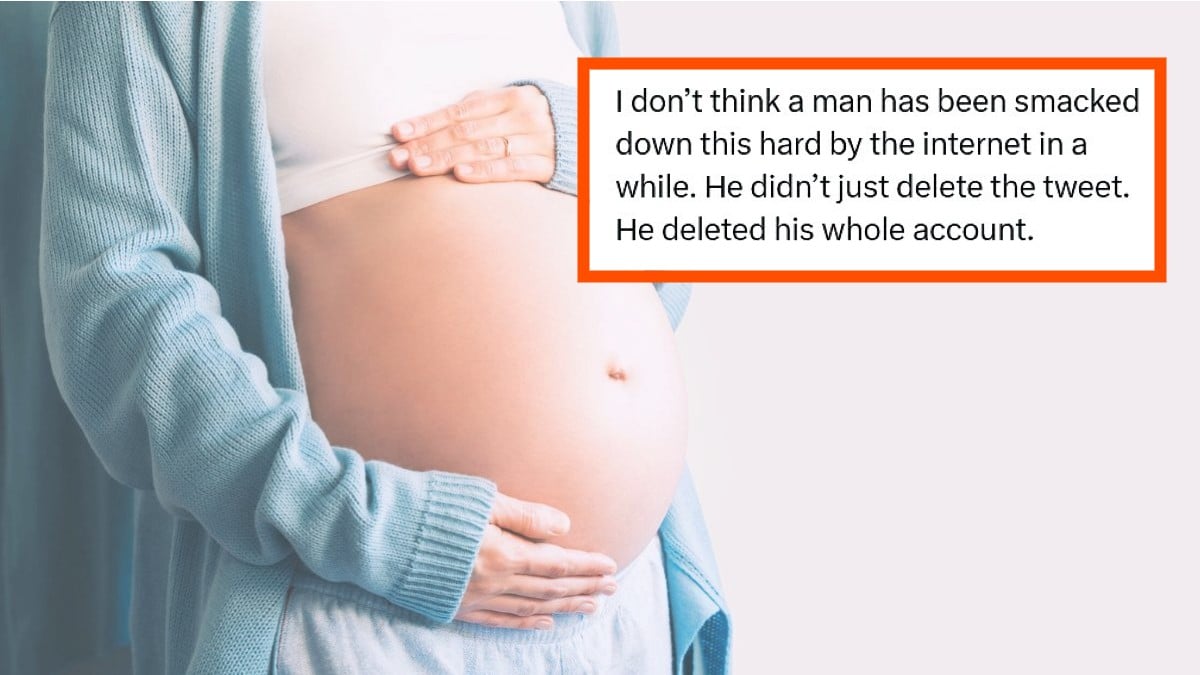Let’s face it, the post-pregnancy phase is no walk in the park for new parents. Sleepless nights, endless diaper changes, and a tiny human constantly demanding attention can be overwhelming, to say the least.
But for a new mother, the challenges may not stop there as she may find herself juggling not just one baby, but two — the second, surprisingly, being her husband. That’s right. Her adult partner may be throwing tantrums of his own. Instead of stepping up as an equal partner, he sulks and whines, as if he’s the one who needs to be coddled and nursed.
Here is the thing – when you decide to bring a child into this world, their needs become the utmost priority. Period. It’s not about you anymore – the helpless little baby relies on you for everything. You would think this would be common sense, right? Well, apparently not for everyone. For one Scott Tyler, whose wife recently gave birth and he is now a father of an 8-weeks-old baby, his wife’s inability to fulfill his narcissistic need for attention is the universal explanation of why men cheat on women during and after their pregnancy.
Disappointing? Absolutely. But complaining and getting jealous of your newborn? Not a good look.
One user aptly pointed out that Tyler’s wife was clearly not seen as a human being to him, highlighting the blatant objectification at play.
Another quipped that they hadn’t seen a man get smacked down this hard by the internet in a while, noting that Tyler didn’t just delete his tweet, but his entire account. Ouch.
Many, often men, question why the women of this era are so averse to the idea of getting married. Gee, I wonder why.
Men like Tyler (& Trump) are often the same ones who feel equally entitled to comment on and control women’s reproductive choices. They want a baby that is only half theirs to raise as an accessory, without understanding the psychological impacts of pregnancy.
The postpartum period is a time when a new mother is at her most vulnerable. There’s a lot happening with their bodies and emotions. During this period, mothers might not be interested in being close with their partners for a while because they’re healing and they’re super tired. It’s normal, and it’s temporary. But if the concept of temporarily sidelined intimacy post-birth is unbearable, one might argue that fatherhood could be a misstep. After all, there’s only room for one screaming, pooping, attention-seeking infant in this equation, and it sure as hell shouldn’t be the adult male throwing a hissy fit.
Now, this isn’t to say that the needs and feelings of the non-birthing partner don’t matter. They absolutely do. However, it’s crucial to consider the emotional challenges of the postpartum period, which can escalate into postpartum depression (PPD), a more severe and persistent condition that affects approximately 1 in 7 mothers. PPD can cause feelings of hopelessness, worthlessness, and even thoughts of self-harm or harm to the baby.
The moral of the story is this: Your partner needs you now more than ever. She needs you to change diapers, to take on household chores, to let her sleep when she can, and to be patient and understanding when she’s struggling. So, put on your big boy pants and step up.
